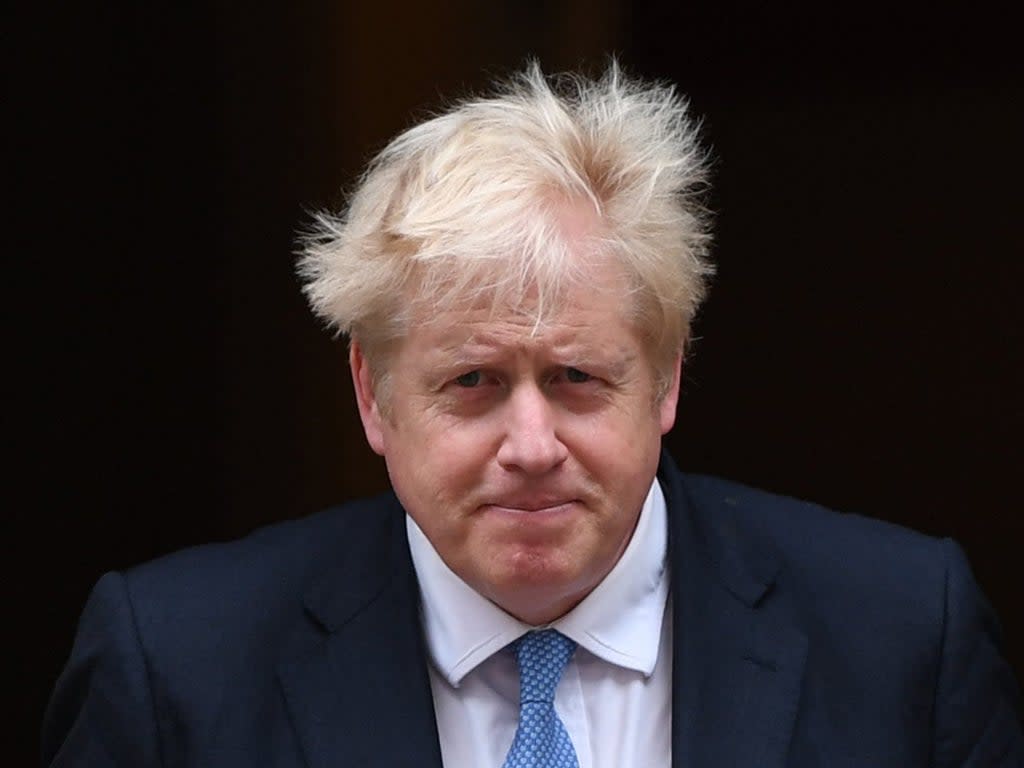Britain tries to win over international investors at post-Brexit London summit

Britain’s government will seek to woo global financiers at London’s Science Museum on Tuesday after years of uncertainty triggered by Brexit and the pandemic chilled overseas investment in the country. The leaders of some of the world’s largest financial institutions will then be hosted by the Queen at Windsor Castle.
The drive to attract foreign investment into the country follows a sharp drop in the number of projects funded from external sources since the 2016 referendum and a fall in 2020, following the COVID-19 pandemic, according to figures from the trade department.
Conversations with investors are starting to turn a corner with a UK-EU trade deal now secured, trade department sources claim, as the UK government plays host to a Global Investment Summit and announces £9.7 billion-worth of projects.
The deals account for 30,000 new jobs, according to the government, and will bolster its ambitions for slashing carbon emissions ahead of the UN Cop 29 conference in Glasgow next month. A clutch of the world’s most powerful financiers, including Goldman Sachs chief executive David Solomon and JP Morgan’s Jamie Dimon are set to attend.
Prime Minister Boris Johnson said the summit and its investment agreements “will power our economic recovery, creating thousands of jobs and helping to level up across the country.
“This is just the start. We will see new partnerships for green growth forged at today’s Global Investment Summit, as we look ahead to COP26 and beyond,” he added.
Alongside a speech outlining his vision for the future of investment in the UK, Mr Johnson will hold an informal “fireside chat” with Microsoft co-founder Bill Gates. The conversation is set to focus on the role of private capital in tackling climate change.
The prime minister and chancellor Rishi Sunak will also hold separate evening dinners for investors on Monday evening.
The summit comes as the UK tries to wrestle with the issue of whose money, and influence it feels comfortable being ploughed into its economy. Moral questions and security concerns have weighed on the government as it seeks to turn rhetoric about a new, more global Britain into a more prosperous reality.
A deal which may touch on the conundrum is also set to be marked on Tuesday. It involves Huaneng, a Chinese state-backed company which is one of the country’s biggest electricity businesses. The firm has invested in a battery storage project in Wiltshire.
The step to further integrate Chinese investment in the UK’s energy infrastructure comes despite a shift in the government’s attitude towards the regime’s role in areas such as nuclear power. Officials within the business department are trying to work out how to remove China from some a host of sensitive energy-related investments.
This includes an effort to take hold of Chinese company CGN’s 20 per cent stake in the Sizewell C nuclear power project.
It also comes after UK trade secretary, Anne-Marie Trevelyan suggested, in an interview with the Financial Times last weekend, that Chinese investors were welcome to invest in the UK, but only in certain areas of the economy.
“For everything that’s in a non-strategic area, we welcome investment from all those who understand the value and importance of working here,” she said.
A press release from Huaneng on its website suggests its project will perform a critical role in the UK’s energy infrastructure: “After the project’s operation, it will become the largest battery energy storage project in Europe, providing power source emergency support when the main grid has an accident, and elevating effectively the safe operation level of the grid.”
Back in July, the UK government said it will not accept investments “which compromise our national security, and all investment must meet stringent legal and regulatory requirements to protect the UK’s national interest”.
In January 2022, The National Security and Investment Act 2021, is set to come into force. It aims to “modernise and strengthen” the government’s national security investment screening powers.
In another bid to transition the UK’s energy supplies away from fossil fuels, Spanish company Iberdrola has also committed to invest in the UK’s energy infrastructure. The offshore wind deal will supply enough green energy to power 2.7 million British homes and create 7,000 jobs, the government said.
Read More
Christmas shoppers warned about post-Brexit charges on orders from EU
Travel to Europe: the post-Brexit passport rules
Government delays key Brexit border checks
Inflation is eating into Sunak’s Budget, Resolution foundation says
Supply chain chaos and labour shortages will last until 2023, say finance bosses
Klarna to offer ‘buy now’ option as regulators prepare for crackdown

 Yahoo News
Yahoo News 
